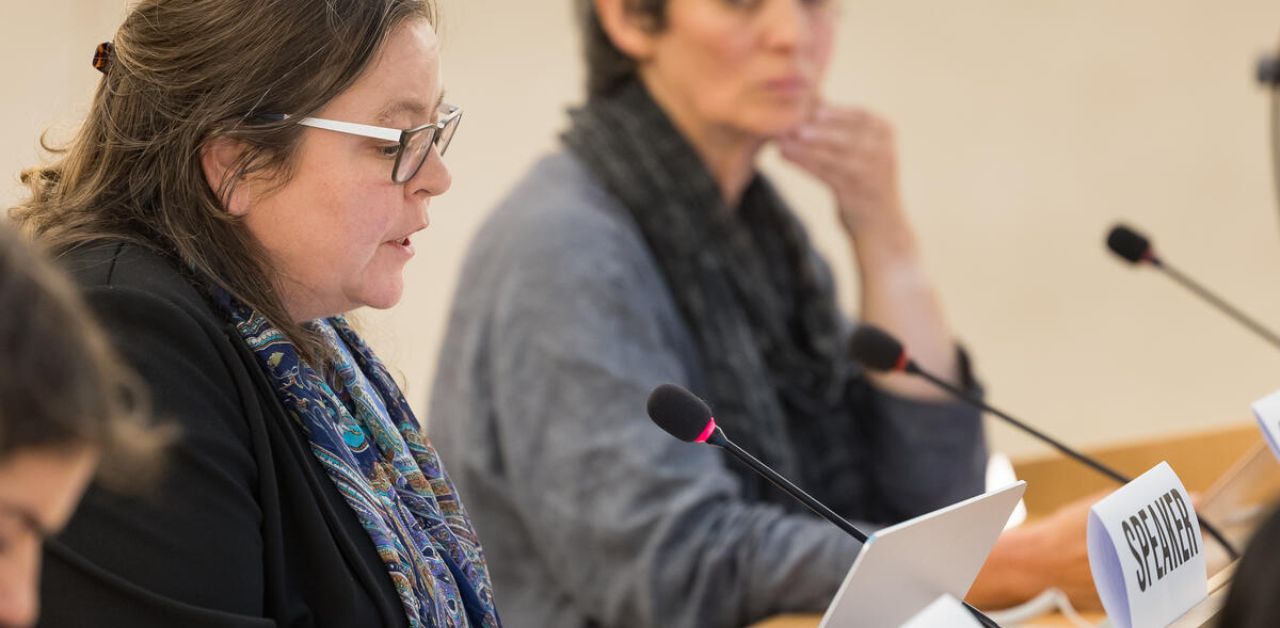© World Health Organization/Photographer
The International Association for Suicide Prevention (IASP) was honoured to join global health leaders at the 78th World Health Assembly (WHA) in Geneva, where mental health continued to gain vital momentum on the global policy agenda. IASP’s presence marked a significant opportunity to advocate for suicide prevention as a public health imperative and to amplify the voices of those in suicidal crisis.
As a non-state actor in official relations with the World Health Organization (WHO), IASP contributed to key WHA discussions and side events, reinforcing the urgent need for comprehensive, evidence-based and rights-based approaches to suicide prevention.
A defining moment of the week was IASP’s participation in the WHA side event “Suicide Prevention: A Call for Policy Change and Public Health Action”, hosted by the Government of the Netherlands in partnership with United for Global Mental Health and the Global Mental Health Action Network. The event brought together Member States, UN agencies, civil society, and lived experience advocates to spotlight suicide prevention as a global priority.
During the session, country-level progress was shared, such as legal reform in Guyana and pesticide regulation in Sri Lanka, demonstrating the life-saving impact of targeted government action. “Suicide prevention is not rocket science – it requires evidence-based strategies, community-led initiatives, and political commitment,” noted IASP President Professor Jo Robinson. The message was clear: when governments invest in national suicide prevention strategies that are inclusive and grounded in human rights, lives can be saved.
Throughout the week, IASP delivered formal statements across three WHA agenda items, ensuring suicide prevention remained central to broader global health discussions.
13.1. Mental Health in the Prevention and Control of Non-Communicable Diseases (NCDs)
IASP welcomed the recognition of mental health within NCD frameworks and called on Member States to embed suicide prevention into NCD strategies with appropriate resources and multisectoral support. The statement emphasised the need for legal reform, including the decriminalisation of suicide, and urged countries to adopt human rights-based approaches that address the social and commercial determinants impacting both mental and physical health. The Bahamas notably referenced suicide prevention in their remarks—a testament to the growing recognition of this issue.
13.2. Mental Health and Social Connection
Acknowledging social disconnection as a significant and modifiable risk factor for suicide, IASP urged Member States to integrate social connection strategies within national public health planning. Social prescribing, peer-led initiatives, and community-based prevention programs were highlighted as impactful interventions. IASP also advocated for WHO to support governments with technical guidance and shared learning to embed connection within multi-sectoral policies—from urban planning and education to digital infrastructure.
13.3 Universal Health Coverage
In its third statement, IASP reaffirmed that mental health and suicide prevention are essential components of UHC. The organisation called for the integration of suicide prevention indicators into national health information systems and emphasised the value of crisis helplines, culturally responsive services, and lived experience leadership in care design. In particular, IASP drew attention to the burden of suicide in low- and middle-income countries, where the majority of global suicides occur and where access to care is often limited. The need for decriminalisation as a mechanism for reducing stigma and enabling help-seeking was also reinforced.
IASP’s participation at WHA78 reinforced its commitment to working with governments, civil society, and international partners to advance suicide prevention worldwide. Through high-level engagement, the organisation was able to spotlight suicide as a cross-cutting issue with implications for health, human rights, and social justice.
As IASP CEO Ms Wendy Orchard reflected, “We leave Geneva with renewed resolve to ensure that suicide prevention is integrated into health systems and supported through coordinated, inclusive action across all sectors.”
At a time when over 700,000 people die by suicide each year, IASP’s voice at the WHA reminded governments that suicide is preventable—and that preventing it must be a collective priority. Investing in national strategies, involving people with lived experience, and addressing upstream determinants through cross-sectoral action are not optional—they are essential steps toward reducing the global burden of suicide. IASP will continue to work with WHO and Member States to ensure suicide prevention remains a critical component of global and national health agendas.




